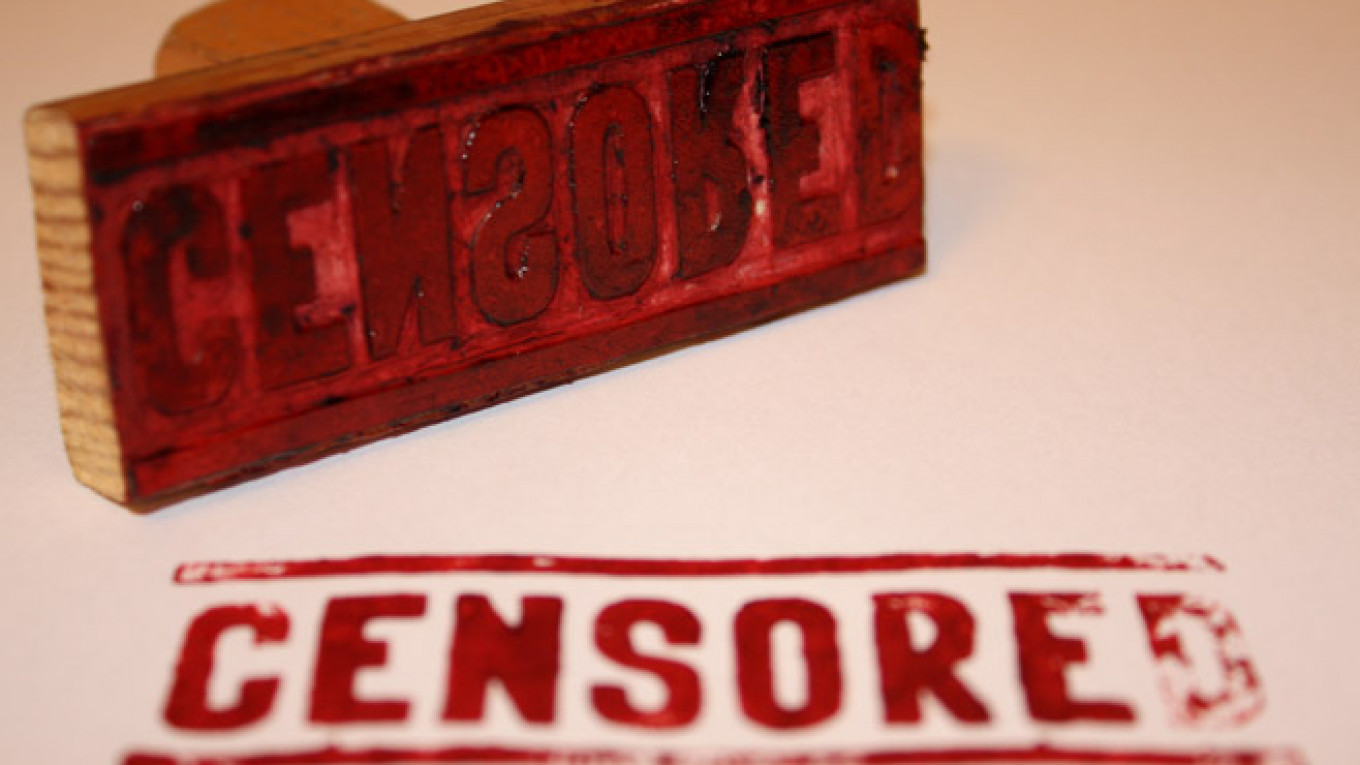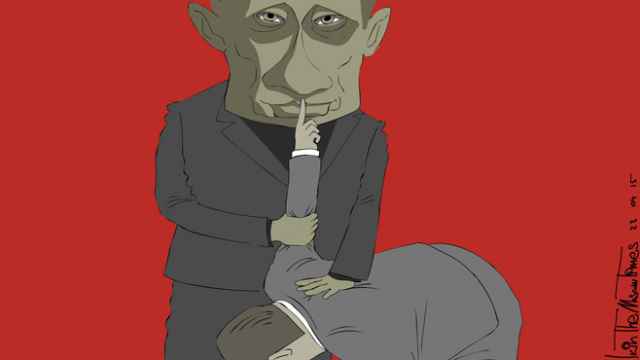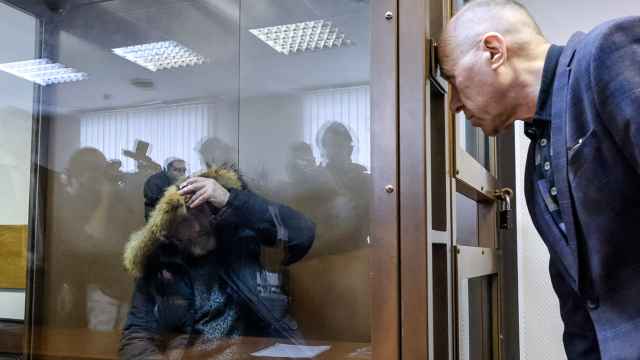A vast majority of Russians think the state should censor artistic creations believed to be vulgar, immoral or harmful to society, according to a survey published conducted by a state-run pollster revealed.
The Moscow-based Public Opinion Foundation found that 82 percent of Russians agree with the state's control of films, books, theater productions and art exhibits. Respondents in favor of state censorship frequently said it was needed to prevent the injurious effects of works of art containing violent, vulgar or immoral episodes on society.
Fourteen percent of Russians do not support state intervention when it comes to the content and dissemination of artistic creations, the survey also showed.
Yet the poll — conducted last month among 1,000 adults from 480 municipalities with a margin of error not exceeding 3.8 percent — found that 56 percent of the Russian population think bans on theater productions, films and other artistic creations are unacceptable.
State intervention in the cultural field has run rampant in recent months. Earlier this year, Russian Orthodox activists complained about a production of Richard Wagner's "Tannhauser" opera, staged at the Novosibirsk Opera and Ballet Theater, saying that it offended their feelings as religious believers. Prosecutors launched an investigation into theater director Boris Mezdrich and stage director Timofei Kulyabin. Mezdrich was dismissed over the scandal.
A major Russian film distribution company cancelled last month its showings in Russia of the British film "Child 44," whose protagonist is a disgraced Soviet secret agent who grows disenchanted with the regime during his investigation of a series of child murders. The Culture Ministry had castigated the film for its negative portrayal of Russia and its historical inaccuracies.
A number of regions also banned showings of the Oscar-nominated Leviathan, a film about a provincial man's fight against a corrupt mayor and Church officials, claiming that it disparaged life in Russia. The film struggled to obtain a screening permit in the country, despite having received glowing international praise. The Culture Ministry finally gave the film an +18 rating, and ordered that its expletives be bleeped out.
Contact the author at [email protected]
A Message from The Moscow Times:
Dear readers,
We are facing unprecedented challenges. Russia's Prosecutor General's Office has designated The Moscow Times as an "undesirable" organization, criminalizing our work and putting our staff at risk of prosecution. This follows our earlier unjust labeling as a "foreign agent."
These actions are direct attempts to silence independent journalism in Russia. The authorities claim our work "discredits the decisions of the Russian leadership." We see things differently: we strive to provide accurate, unbiased reporting on Russia.
We, the journalists of The Moscow Times, refuse to be silenced. But to continue our work, we need your help.
Your support, no matter how small, makes a world of difference. If you can, please support us monthly starting from just $2. It's quick to set up, and every contribution makes a significant impact.
By supporting The Moscow Times, you're defending open, independent journalism in the face of repression. Thank you for standing with us.
Remind me later.






